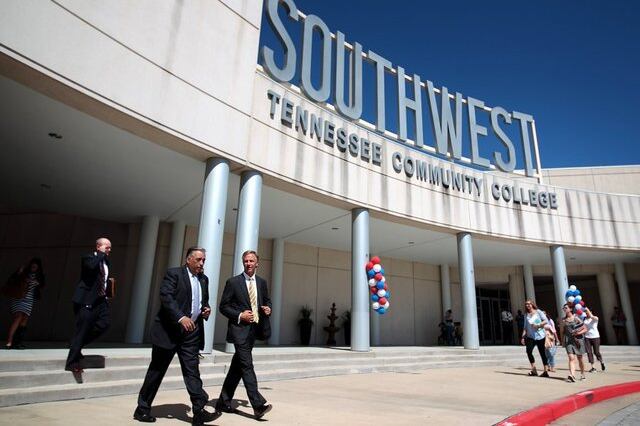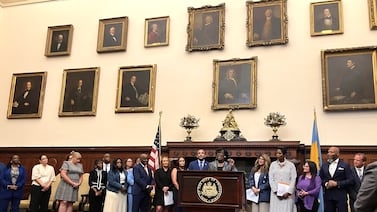Tennessee’s education system must do more to help minority and economically disadvantaged students earn postsecondary degrees in order to meet the state’s workforce needs, a report by an education policy and advocacy organization warned.
The State Collaborative on Reforming Education’s 2024 report, released at the National Civil Rights Museum in Memphis, lauded Tennessee students’ overall progress on standardized tests since the pandemic, and a rebound in the number of students attending college during that time. But the group noted that fewer students were finishing college within six years of graduating high school.
For example, only 26% of the students who entered high school in 2012 had earned degrees or credentials by the summer of 2022, the report said. Black and Hispanic students have lower postsecondary graduation rates than their white peers. Among students who entered high school in 2012:
- 15% of Black students earned postsecondary degrees by 2022
- 16% of Hispanic students earned postsecondary degrees by 2022
- 30% of white students earned postsecondary degrees by 2022
“This is one of the most important data points in the report,” said David Mansouri, CEO of SCORE. “We know that the current pipeline, from K-12 to postsecondary education, and into the job market, is broken, and we are losing too many Tennesseans along the way who want and deserve better opportunities.”
Those numbers also don’t bode well in a state where only 56 workers are available for every 100 jobs, according to the report, and where 70% percent of business leaders say there are not enough trained workers to fill many of those jobs.
“To prepare Tennesseans for jobs enabling economic independence, the education system must better align and respond to the labor market,” the report said. “Tennesseans with postsecondary training valued by employers qualify for a larger portion of the state’s jobs, show greater resilience in the job market during economic downturns and experience greater earnings throughout their lifetime.”
To address the problem, SCORE recommends strengthening existing policies such as the Tennessee Promise program, which provides tuition assistance for students to attend community or technical colleges. SCORE said the program doesn’t go far enough to help students complete college, noting that only one-third of Tennessee Promise students earn a degree in six years.
It also recommends building more effective pathways between education and careers, such as providing clear information on which credentials and degrees are required for certain careers. And it calls for ensuring that K-12 education supports and meets student needs — for example, by finding more highly effective teachers for Tennessee’s low-income students and students of color.
Correction: Dec. 19, 2023: A previous version of this story stated that of the 26 % of Tennessee students who entered high school in 2012 and earned degrees or credentials in 2022, 30% were white, 16% were Hispanic, 15% were Black and 37% identified as other. The percentages for each racial or ethnic group are actually the rates within that group, not the number within the category of all Tennessee students.
Memphis-Shelby County Schools reporter Laura Testino contributed
Bureau Chief Tonyaa Weathersbee oversees Chalkbeat Tennessee’s education coverage. Reach her at tweathersbee@chalkbeat.org.







